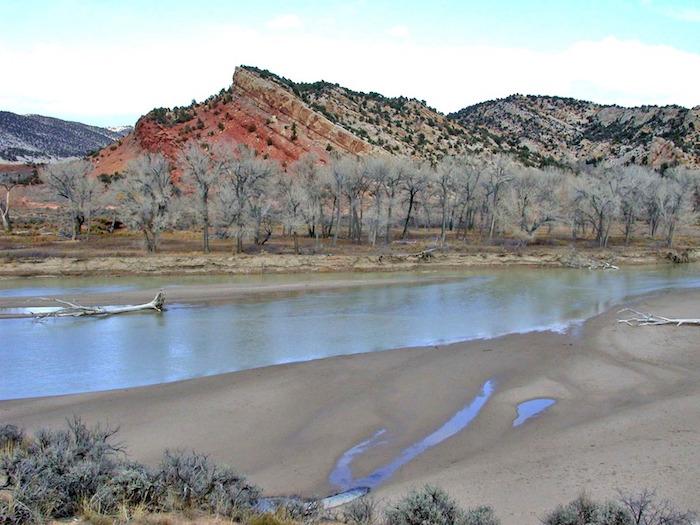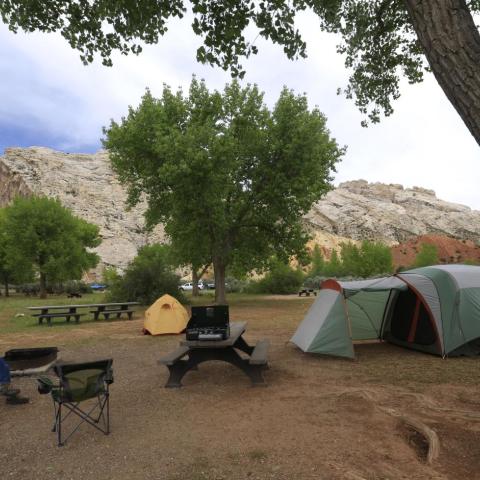
A lawsuit was filed Thursday in a bid to halt oil and gas leasing on public lands near Dinosaur National Monument/NPS file
Concerns that oil and gas development on more than 115,000 acres of public lands could impact air quality near Dinosaur National Monument and other areas in western Colorado and northern Utah prompted the filing of a lawsuit Thursday in a bid to block the federal government from leasing those lands.
The lease sales, offered by the U.S. Bureau of Land Management, violate federal environmental laws and will worsen air quality in a region already laden with harmful levels of ozone pollution, the groups behind the filing maintain. The lawsuit (attached below) contends that the BLM failed to properly analyze risks to public health and the environment, as required by federal laws.
“(Interior Secretary Ryan) Zinke’s playing a dangerous game by skipping environmental reviews at the risk of human lives,” said Diana Dascalu-Joffe, a senior attorney at the Center for Biological Diversity. “It’s appalling that he’d push for more fossil fuel extraction on public lands and then ignore how much damage fracking would do, particularly to kids with asthma. The Trump administration’s drilling and fracking agenda is a disaster for people and wildlife alike.”
Oil and gas operations are the largest human-made source of air and climate pollution in the Uinta Basin, plaguing this once-pristine region with significant air pollution comparable with densely populated cities like Los Angeles and Denver, the Center for Biological Diversity said. Elevated levels of ozone pollution endanger public health, causing asthma attacks, cardiovascular disease and premature death. It’s particularly dangerous for vulnerable populations, including children, seniors and people with respiratory conditions, it added.
The Center went on to charge that the BLM "had a legal duty to analyze and address potential harms to human health and landscapes before leasing the 115,000 acres in December 2017 and June 2018. The agency skipped this analysis, instead prioritizing the interests of oil and gas companies over public health and environmental protection."
“Prioritizing economic benefits over public health and the environment is wrong,” said Matt Sandler, staff attorney for Rocky Mountain Wild. “This is especially so when the BLM has failed to comply with the laws that would have ensured the public knew the full impacts of these leasing decisions.”

Public lands oil and gas development and fracking near Utah’s White and Green rivers south of Dinosaur NM/Taylor McKinnon, EcoFlight
The leased area includes land near Dinosaur National Monument, where more than 300,000 visitors a year come to experience the expansive views, untouched landscape and dark night skies. Air pollution from oil and gas drilling in the region already worsens visibility, stunts vegetation growth and harms delicate ecosystems. More oil and gas development in the area will only make matters worse.
“Our national parks offer millions of people each year the opportunity to connect to the great outdoors and learn about our country’s past, but the protection of our parks can only be assured when their adjacent lands are well-managed," said David Nimkin, the National Parks Conservation Association's senior southwest regional director. “NPCA is deeply concerned about the deteriorating air quality in this region due to oil and gas development that directly affects national parks like Dinosaur National Monument, as well as the health of park visitors, who come here to experience the striking views, dark night skies and exceptional biodiversity of this unique place. As a recent national study found, park visitation drops by at least eight percent when ozone pollution is high — a clear indicator that air quality is an important issue for the public and directly impacts their enjoyment of our national parks.”
The lawsuit was filed by Rocky Mountain Wild, National Parks Conservation Association, the Center for Biological Diversity and WildEarth Guardians. The groups are represented by Earthjustice.


 Support Essential Coverage of Essential Places
Support Essential Coverage of Essential Places






